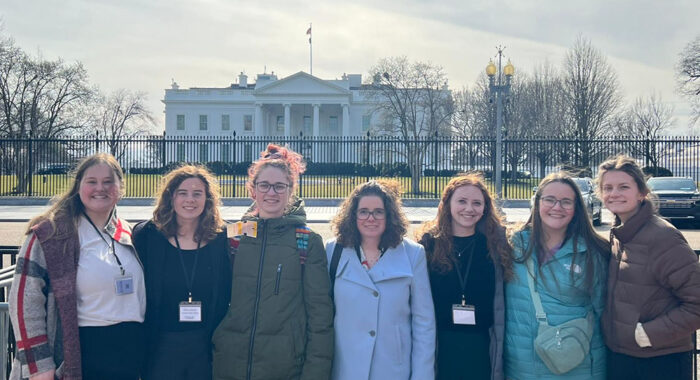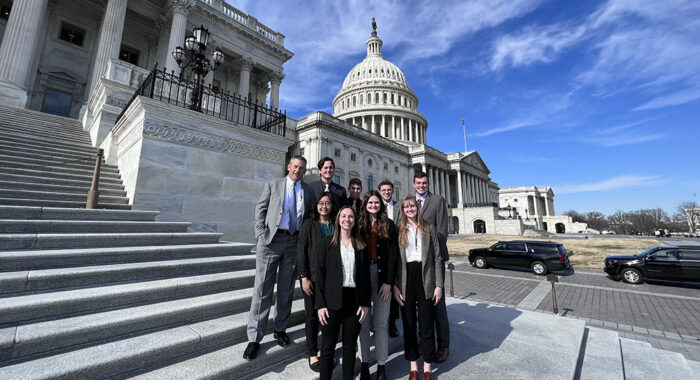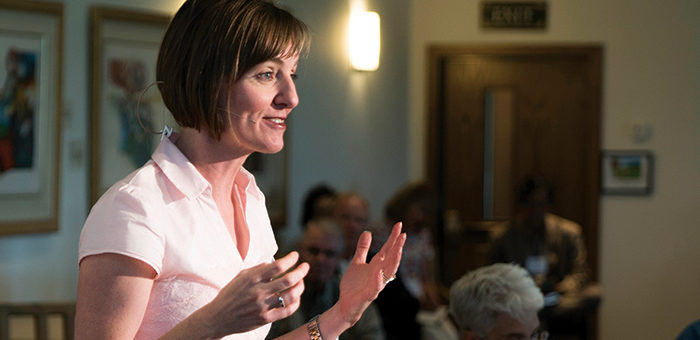Amy Hanson is a speaker, writer and consultant with a passion to help older adults discover a life of Christ-centered meaning and purpose. In her 20s, she led a ministry of over 300 adults 50 and older at a church in Las Vegas. She is the author of “Baby Boomers and Beyond: Tapping the Ministry Talents and Passions of Adults Over 50.” Hanson has a bachelor’s degree in Bible and family ministry from Manhattan Christian College, a master’s degree in gerontology from Abilene Christian University, and a Ph.D. in human sciences from the University of Nebraska.

What do USA Today, Chico’s clothing store, CVS pharmacy, and the government have in common? They are investing significant amounts of time, money and research into one of the biggest demographic shifts in America: the aging population. They are studying the baby boomer, and the impact this huge group will have on society in their later years. And yet the Church is virtually silent on this topic.
If we want to be churches that are culturally relevant, we must begin to make this a priority. As I’ve traveled around the country and interacted with hundreds of church leaders, I’ve discovered several things that can be done to prepare for ministry with aging baby boomers.
- Do not ask baby boomers to fold into an existing senior adult ministry. Boomers are a different generation than the Builders, and for the most part, they are not interested in traditional senior adult activities such as bus trips or potluck luncheons.
- Gather a small team of adults who are 50-70 years old. Ask them about their needs and life issues, such as caring for aging parents and dealing with adult children and also discuss what kind of externally focused ministries their generation would like to engage in. Then invite the team to build this kind of vibrant ministry.
- Ramp up the service opportunities. Far too many churches limit their older adults to folding church bulletins or making coffee. These are adults who have led companies, taught in schools and raised families. Plan service projects where boomers serve with a local mission. Show them how to turn their hobbies into ministry. Help them identify ways to use their past work experience for kingdom building. And then communicate through stories to the entire church that it is normal for those in the second-half of life to make a significant impact for Christ in this world.
- Designate a portion of the church finances and staff to ministry with baby boomers. If your church hires staff for designated population segments (men, women, young adults, etc.), hiring someone for baby boomers communicates the importance you place on this ministry. Neglecting to make this a line item in the church budget sends a message that this is not a high priority.
- Include this demographic in sermons. Use illustrations that directly relate to people in the second-half of life. If the sermon is about marriage, what is an issue facing empty nest marriages?
- Bury the myth that the only way to grow a church is through young families. We need to reach young people, but we also need to reach the millions of baby boomers who are lost and desperately need a Savior.
Never before have so many adults moved into their later years of life with so much health and vitality. We have a window of opportunity to harness the capacity of this enormous generation — to grow them as disciples of Christ and to mobilize them for his mission. Let’s not miss the chance.
This article originally appeared in the NAE Insight.



 View All Articles
View All Articles 





















